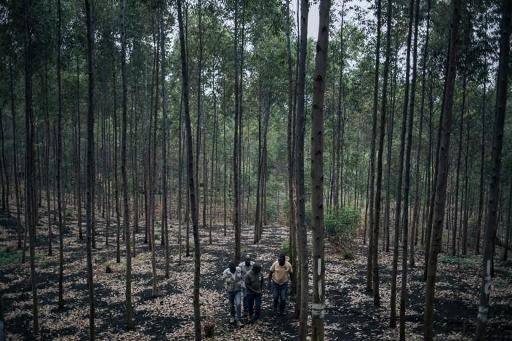Campaigns to plant large numbers of trees could have counterproductive effects, according to a study published Monday by researchers from UCLouvain, the University of Concepción in Chile, Stanford University and the University of Santa Barbara.
Given forests’ role in the fight against climate change, tree planting projects have gained credibility in recent years. However, such campaigns could lead to further biodiversity loss and very little additional carbon sequestration (in other words, capturing carbon dioxide), according to the researchers.
Almost 80% of projects involve monoculture plantations rather than restoring natural forests. In other words, only a single type of tree or plant is grown. Yet these plantations generally have much less potential for carbon sequestration, habitat creation and erosion control than natural forests.
Related News
- Extinction Rebellion occupies crossing in Brussels' Bois de la Cambre
- Scheldt pollution accident: almost all fish saved in Flemish waters
This study examined the impact of reforestation subsidies in Chile and calculated their effects on net changes in carbon and biodiversity. It was found that while tree plantations contributed to an increase in forest area, they led to a decrease in natural forest area.
"Chile's natural forests are denser in carbon and richer in biodiversity than plantations, so subsidies have failed to increase carbon storage capacity and have accelerated biodiversity loss," the study found.
"If policies encouraging tree plantations are poorly designed or poorly implemented, there is a great risk not only of wasting public money, but also of leading to losses in both terrestrial carbon and biodiversity," said Eric Lambin, a researcher at UCLouvain and Stanford. "These policies aim to do exactly the opposite,” he underlined.
The researchers suggest that strict measures to protect natural forests be applied instead. "In the future, subsidies should help promote the restoration of the many natural ecosystems rich in carbon and biodiversity that have been lost," Lambin concluded.
The Brussels Times

